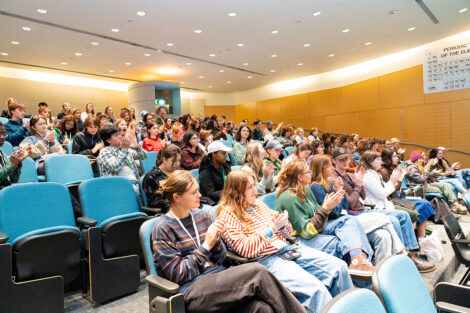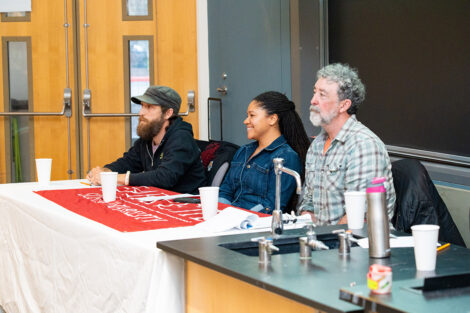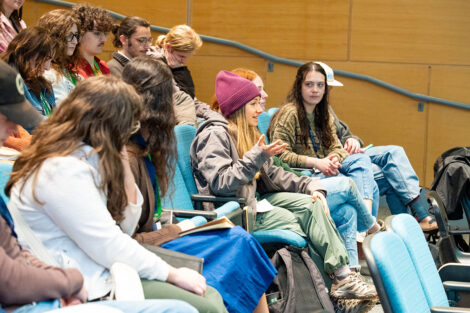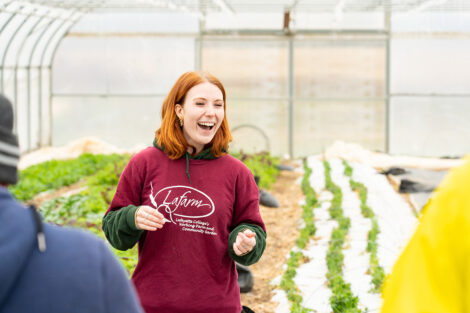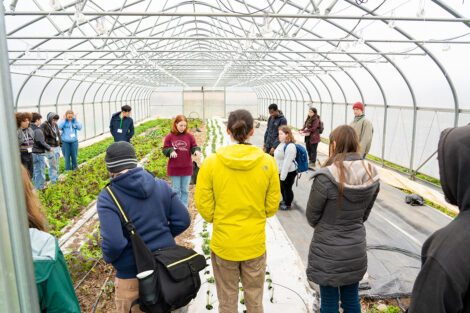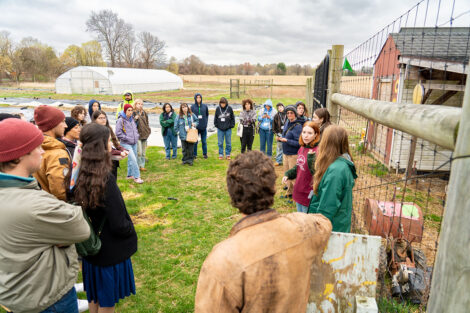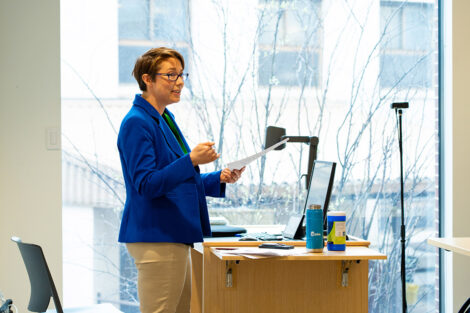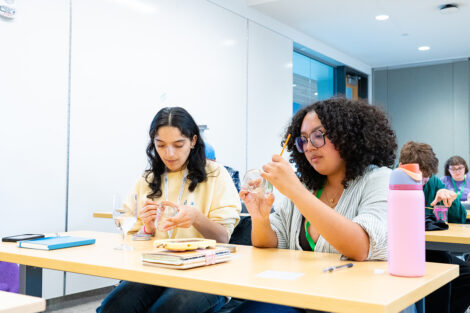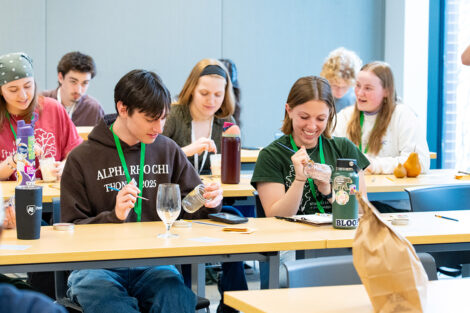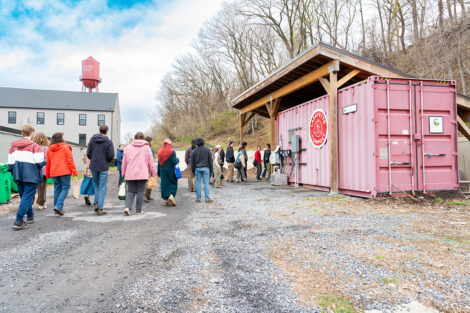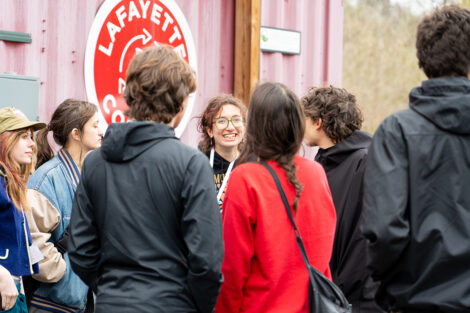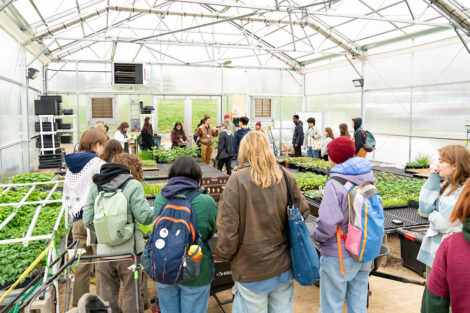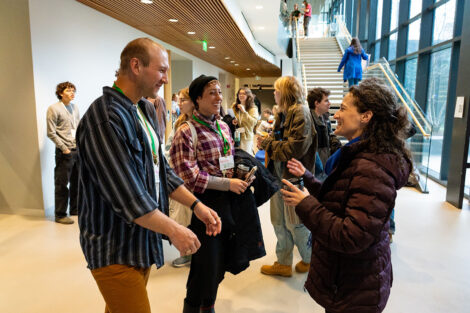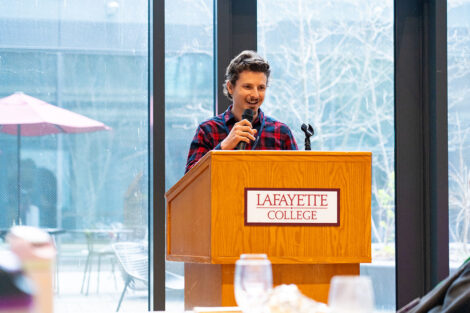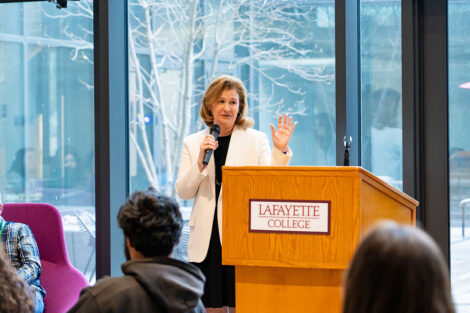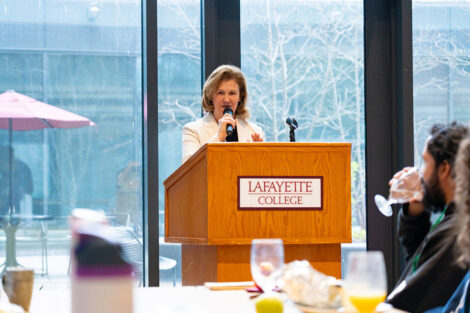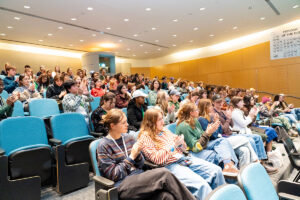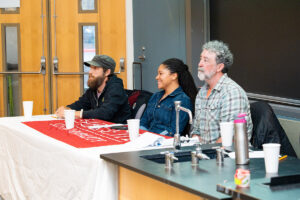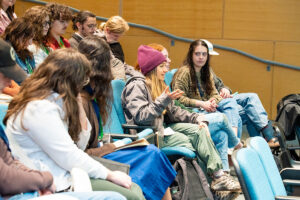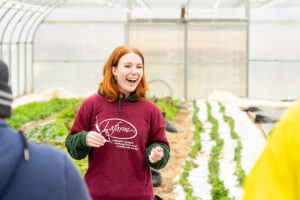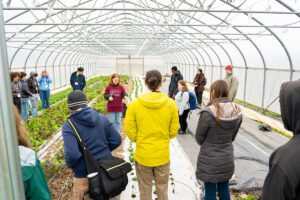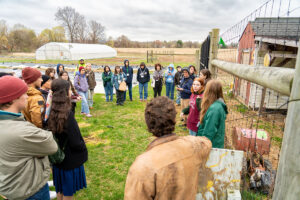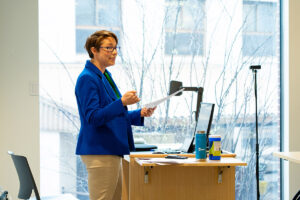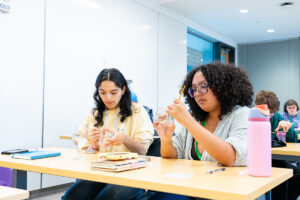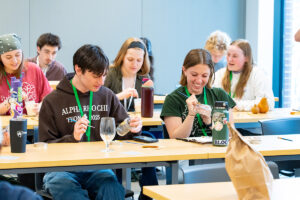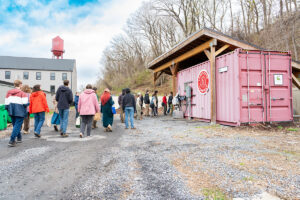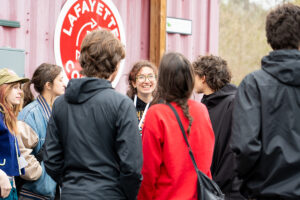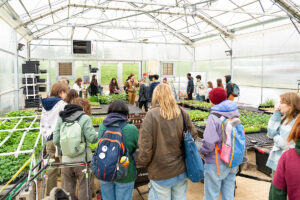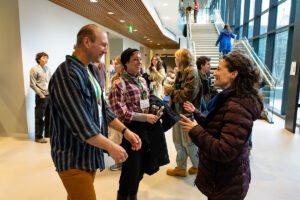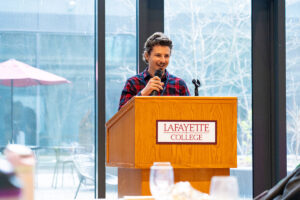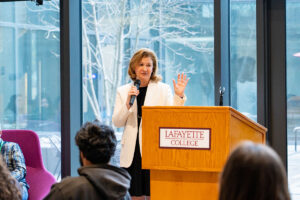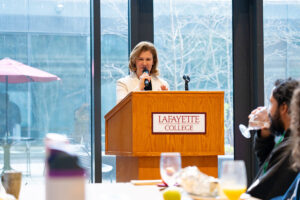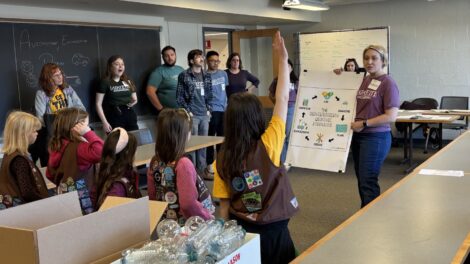Lafayette hosts Northeast Student Food and Farm Conference
By Grace Sanborn ’25
Organized by the Lafayette Food and Farm Co-Operative (LaFFCo) student club, Lafayette College hosted the annual Northeast Student Food and Farm Conference for the first time April 5.
After attending last year’s conference held at Penn State, Samantha Natividad ’25 and Harrison Zoller ’27 were inspired to host the conference, bringing it to the attention of other student leaders and administrators. With support from the College and the executive board of LaFFCo, Natividad and Zoller co-chaired the conference planning.
Leveraging Lafayette College’s strategic location in the northeast fostered a broad network of participants: 127 people registered for the conference from 17 different institutions, including Bard College, Temple University, Bucknell College, Barnard College, Ohio State, University of Connecticut, Swarthmore, Haverford, and Bryn Mawr, according to Natividad and Zoller. The conference also attracted the attention of nonprofit organizations focused on food systems, soil health, and regenerative agriculture. Several students from Rodale Institute’s farmer training program also attended the conference, taking the discussions and conversations held by undergraduate students back to the institution.
The conference included presentations from multiple speakers and schools on topics ranging from a solar-powered vermicomposter to psychology literature on the importance of food, which Zoller says allowed attendees to get different perspectives on what other undergraduate students are discussing at their own institutions. Attendees were also given the option to tour LaFarm, Lafayette’s 3-acre farm and community garden, or take a sustainability tour of campus and shop at Lafayette’s Campus Thrift Store.
Rather than catering lunch in, Zoller and Natividad thought of having attendees walk to the Easton Public Market so they could experience Easton outside of Lafayette.
“It was a good outlet to have those more personal conversations too, which I really like,” Natividad says.
The day concluded with a Farmer and Academia Panel discussion featuring Eli Stogsdill from the Monocacy Farm Project, Amirah Mitchell from SistahSeeds, and Mark Reid from Easton Garden Works on the topics of farming careers and the future of food justice.
“The panel was a perfect capstone to the conference, with practitioners who are thinkers and leaders sharing with the packed crowd what justice could look like in practice, not just rhetoric,” says Benjamin Cohen, chair of engineering studies and professor of environmental studies.
Natividad and Zoller emphasize the “grassroots” nature of organizing the conference, highlighting a collaborative effort with another student organization, Lafayette Outdoors Society (LOSt), to have roughly 30 guests camp outside on Friday night instead of finding other accommodations.
Natividad and Zoller say their goal was to create a network of young farmers and students within the same field, but are already helping to facilitate next year’s conference and determine a host.
“Now, we have to start thinking about the conferences ahead; how can we plan them sustainably and how do you keep this going?” Zoller says.
“The opportunity to host this conference was an incredible honor,” says Delicia Nahman, director of sustainability. “It demonstrates that our peers recognize Lafayette’s leadership at the praxis of food and farm systems scholarship and practice. Higher education, alongside our partners, can and must continue to build resilient food systems and thriving communities. Lafayette is thrilled to build upon the momentum of the conference to keep these partnerships moving forward in meaningful ways throughout the year.”
